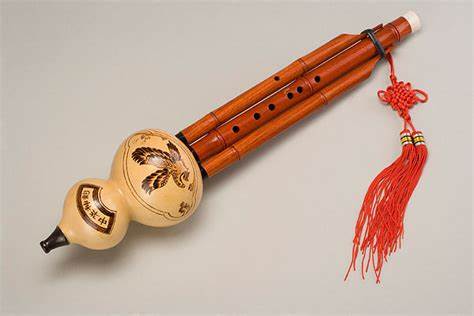Common irregular postures in hulusi performance and their correction strategies
Hulusi, as one of the traditional wind instruments of the Chinese nation, has a soft tone and unique charm, which is deeply loved by the majority of music lovers. However, if you want to play a beautiful melody, not only need to master the skill of playing, but also can not do without the correct posture. This paper will enumerate and analyze the common non-standard posture in the course of hulusi playing, and give the corresponding correction strategy.

1. Head posture is not correct: when playing fenugreek, the head should remain natural and vertical, and the eyes should look straight ahead or slightly down, rather than lower or raise the head. Long-term bow playing is easy to lead to excessive neck pressure, affecting the smooth flow of breath, but also have adverse effects on vision.
Correction method: When practicing, you should always remind yourself to maintain the natural vertical state of the head, which can be checked by the mirror and corrected in time.
2. Unstable body posture: When standing or sitting, the body should remain upright, and the muscles of the waist and back should be slightly tightened to avoid bending over or being too stiff. Poor body posture can affect breath control and musical expression.
Correction method: Regular body posture training, such as standing pile, yoga, etc., to enhance the stability of the body, while consciously relaxing the shoulder, neck and back muscles when playing, to maintain a natural stretch of the body.
3. Improper arm and hand movements: when holding fenugreek, arms should naturally drooping, elbows slightly bent, and keep a certain distance from the body (about 20-30 cm) to prevent squeezing the abdomen and affecting the use of breath. When pressing the finger hole, use the finger belly to avoid pressing the finger hole, ensure intonation and avoid finger tension.
Correction method: By repeatedly practicing the standard hand holding and pressing the hole, feel the exact position of the hole under the relaxed state of the finger, and correct the error through mirror feedback.
4. Incorrect breathing method: Some beginners often use chest breathing or irregular breathing mode when playing fenugreek, resulting in insufficient stability of breath, affecting the tone and ability to continue playing.
Correction method: Learn and master the abdominal breathing method to ensure that the breath is sufficient and stable, you can do several deep breathing exercises before each blow to feel the process of abdominal expansion and contraction.
5. The nozzle contact method is not suitable: the nozzle (also known as the mouthpiece) is too deep or too shallow will affect the playing effect, too deep may hinder the airflow, and too shallow will easily lead to air leakage.
Correction method: The mouthpiece should be gently contained between the lips, forming a small gap with the lower lip, and the tip of the tongue gently touches the bottom of the mouthpiece, by adjusting the depth of the mouthpiece, to find the best position that can effectively control the airflow and blow a clear sound.
The above points are only part of the common non-standard postures in fenugreek performance. Each learner needs to constantly review and improve his/her playing postures in practice. Through teacher's guidance and personal repeated practice, he/she can finally achieve the dual goal of both good performance and health protection.
 渝公网安备 50010702504639号
渝公网安备 50010702504639号